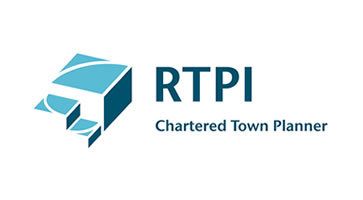A recent survey by the Royal Town Planning Institute (RTPI), has revealed that an overwhelming majority of UK planners want the next government to give stronger direction and more resources to enable local planners to deliver net zero carbon emissions by 2050.
With 79% of respondents agreeing that climate action should be a top priority for the profession, only 17% felt their nation’s planning system or policy framework was well equipped enough to deal with the current climate crisis.
Nearly 90% of respondents agreed or strongly agreed that there needed to be stronger direction from central government and greater resourcing, training and capacity for local authority planning departments to enable more effective local planning for net zero carbon.
Victoria Hills, Chief executive, of the RTPI said: “The government’s own advisory body, the Committee on Climate Change, has acknowledged the role of planners in taking decisive and effective climate action, but without strong direction from central government and an increase in resources and capacity at a local level, it will be impossible for planners to meet the challenges of climate change and achieve the target of net zero carbon emissions by 2050.
“These challenges are so significant and long-term that widespread and fundamental changes in the way our societies are organised and managed will be required. Planning can’t resolve this issue on its own.”
Ms Hills also confirmed that the RTPI has recently joined the UN’s Planners for Climate Action Campaign, which aims to catalyse and accelerate climate action through responsible and transformative urban and territorial planning practice, education and research.
At its annual conference earlier this year, The RTPI launched its Resource Planning for Climate Action campaign, which calls on government to take radical climate actions around buildings and transport, and to develop a tool to help local authorities gauge the carbon impact of existing and emerging local plans.
The campaign calls on the next government to:
- ensure that all new build homes are zero carbon and that measures and resources are put in place for existing homes to be zero carbon and to begin a major national retrofitting programme for existing homes;
- roll-out SCATTER, a tool for assessing the carbon impact of existing and future local plans, on wider scale;
- ensure that climate change mitigation is a vital component of wider planning and infrastructure policy and that government listens to the planning profession in formulating that policy;
- give more resources to local planning authorities;
- empower devolved national governments and local authorities to lead on climate change mitigation in the devolved nations at local level and give them the resources to do so;
- invest in UK infrastructure for smart energy heat and sustainable mobility, including greater collaboration between the ministries of BEIS, DfT and HCLG, as well as devolved governments.
A total of 994 out of the RTPI’s 25,000 members responded to the RTPI’s climate change survey. Respondents came from across the public, private and third sectors.
“Town planning is increasingly important across the world as climate change bites,” said Jonathan Jenkin, Managing Director of Planning & Design.
“With climate change the provision off public transport must increase, the use of the private car should be reduced and our homes should be built to zero carbon. This means building at greater densities and making the best use of land in our urban areas. It means co-ordinating development with public transport and building in locations of greatest accessibility so that people have a choice of transport options, to do this will give young people and the elderly autonomy in their lives, reduce inequality through better access to work and public services and in doing so create greater well-being for all.“
Respondents of the survey also called for zero carbon targets to be set in Building Regulations, more collaboration with other industries in the built environment sector, greater subsidies for retrofitting and more focus on transport planning.



